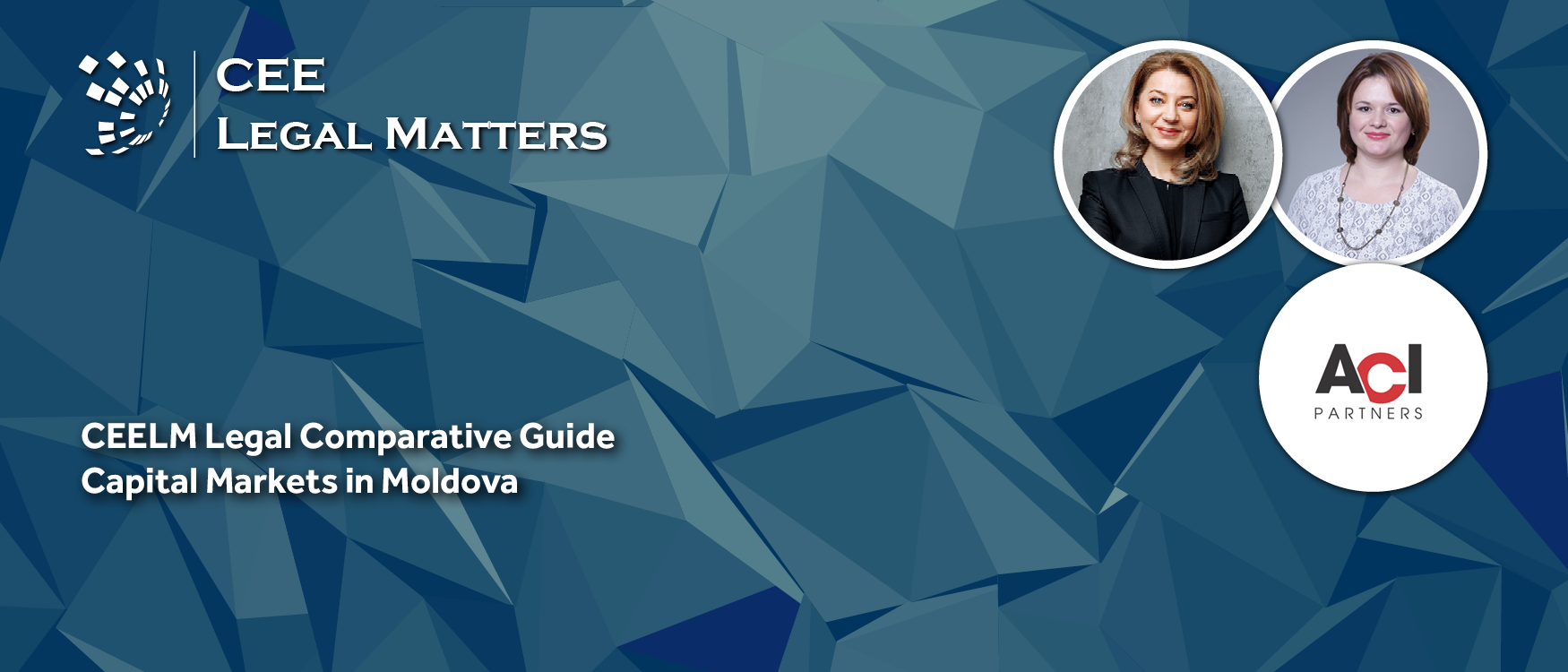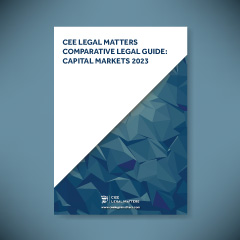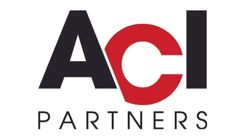Contributed by ACI Partners.
1. Market Overview
Moldova’s capital market started its existence in 1994, following a mass privatization process. Since then, the Moldovan capital market has been subject to several reforms, but until nowadays is characterized as underdeveloped. Among the factors determining the low level of the Moldovan capital market development are named the absence of liquid financial instruments, lack of institutional investors, and low degree of confidence in investing in financial instruments.
Moldovan capital market is mostly limited to the equity securities market transacted on primary and secondary markets, with limited experience in municipal bonds issuance. Transactions with equity securities continue to be mainly performed on the OTC segment of the market, with a size in 2022 of MDL 190 million and 2,642 transactions.
No corporate bonds market exists even though the necessary legal framework is in place.
In 2022, the National Commission of Financial Markets (NCFM) registered one issuance of shares on the primary market of about MDL 10 million, and 65 issuances of shares on the secondary market amounting to MDL 2,947 million. The most significant issuance of shares in 2022 on the secondary market was registered by the state-owned company Energocom S.A. for a total value of MDL 2,426 million following the decisions of the Commission for Exceptional Situation, as a measure to secure the national energy sector.
Capital market participants that are duly licensed and operate in Moldova include one market operator, which manages and operates the regulated market and MTF, seven investment banking companies, seven non-banking investment companies, eight registrar companies, and five appraisals.
The Moldovan government continues its efforts to improve the capital market legislation. The Capital Market Law was recently amended so that starting with June 2023 foreign securities will be accepted for trading on the Moldovan regulated market if certain conditions are met, namely that the issuers were incorporated at least three years prior, registered a profit for at least two years, and there aren’t any trading prohibitions imposed by the operator of a foreign or Moldovan regulated market.
2. Overview of the local stock exchange and listing segments (markets)
2.1. Regulated market
Under the Capital Market Law, a regulated market represents a multilateral system, which is managed and used by a market operator, which brings together or facilitates the bringing together of multiple third-party buying and selling orders in financial instruments that are admitted for trade in a way that results in contracts. The regulated market operates under its own rules and shall be authorized by the NCFM.
Currently, Moldova Stock Exchange (MSE) is the only operator authorized to manage and operate a regulated market in Moldova. Transactions on MSE regulated market are performed according to the MSE Rules. As of March 15, 2023, the securities of 15 issuers are admitted for trade on the MSE-regulated market, represented by eight commercial banks, three insurance companies, and two issuers from other non-financial industries intending to perform public bids of securities. The municipal bonds issued by the Chisinau municipality are also listed on MSE regulated market.
The total value of ECM transactions on the regulated market in 2022 amounted to MDL 364.93 million, the most significant transaction being the trade of 83.62 shares in ENERGBANK S.A., with a subsequent takeover bid of the minority shares.
2.2. Non-regulated market
The Capital Market Law also regulates the possibility to trade securities through the MTF, representing a system operated by an investment firm or market operator which brings together multiple third-party buying and selling orders in financial instruments. In Moldova, MTFs can be operated by investment firms or market operators based on their own discretionary rules and are subject to broadly the same overarching regulatory and transparency requirements as the regulated markets.
Currently, the only market operator authorized to operate through the MTF system in Moldova is the MSE. As of March 15, 2023, the securities of 20 issuers are admitted for trade on the MTF managed by the MSE. The municipal bonds issued by the mayoralties of Singera and Ceadir-Lunga are also traded on MTF.
The total value of ECM transactions conducted within the MTF in 2022 recorded a value of MDL 13 million with 81 transactions.
3. Key Listing Requirements
3.1. ECM
In order to be listed on the stock exchange the issuer of equity shares must comply with the following requirements
1) a prospectus must be drawn up and approved by the NCFM and made public;
2) a minimum market capitalization for equity shares to be eligible for listing is EUR 1 million. If the minimum market capitalization is not possible to be calculated, the issuer shall prove EUR 1 million as share capital. NCFM may exempt the issuer from these requirements if NCFM resolves that the issuers’ securities are appropriate to be traded on the regulated market.
4) securities proposed for listing shall be fully paid, except for the primary issuance of shares;
5) the issuer must meet a minimum of 10% free float, except for the primary issuance of shares;
5) issuer’s net assets are not lower than the issuer’s share capital;
6) issuer’s register of shareholders is maintained by the National Central Depository:
6) documentary evidence, including:
(i) charter and excerpt from the trade register
(ii) registration certificates for each issuance of securities
(iii) public offer prospectus as approved by the NCFM
(iv) audited financial statements for the last three years, and for the previous quarter together with the auditor’s reports
(v) resolution of issuer’s governing bodies approving the listing of securities on the regulated market, etc.
3.2. DCM
The key listing requirements of MSE applicable to DCM as debt financial instruments are as follows:
1) a prospectus must be drawn up and approved by the NCFM and made public;
2) the issued debt financial instruments are fully paid and may be freely traded;
3) the value of the debt financial instruments to be listed shall be at least EUR 200,000;
4) the issuer shall keep the register of bondholders with the National Central Depository.
4. Prospectus Disclosure
4.1. Regulatory regime (EU Prospectus Regulation or similar) – equity
The prospectus regime in Moldova is mainly governed by the Capital Market Law, the NCFM Regulation No. 33/1 of June 16, 2015, on Public Bids, the NFMC Rules No. 13/10 of 13.03.2018 on Steps, Terms, Method, and Procedure of Securities Registration, and the MSE Rules.
A prospectus is to be written in an easily analyzable, concise, and comprehensible form and shall contain the necessary information to allow an investor to make an informed assessment of the issuer, the rights attaching to the securities being offered, and the reasons for the issue and impact on the issuer. It may be published in a single document or in three separate documents comprising a registration document (containing information relating to the issuer), a securities note (containing information concerning the securities being offered), and a prospectus summary.
Key information to be included in a prospectus includes:
1) risk factors informing potential investors of the material risks to the issuer, its industry, and the securities being offered. These should be specific to the issuer or shares being offered, be grouped into a limited number of categories with the most material factor listed first, and, where possible, there should be a quantitative assessment of each risk;
2) audited financial information for the previous three years;
3) details of any significant changes in the financial or trading position of the company since the date of the latest published audit or interim financial information;
4) an operating and financial review describing the company’s financial condition, changes in financial condition, and results of operations for the periods covered by the historical financial information included in the prospectus;
5) summaries of material contracts entered into outside of the ordinary course of business by the company’s group in the past two years (or longer if material obligations or entitlements remain outstanding);
6) details of any significant shareholders of the issuer;
7) details of any related party transactions that the company has entered into during the period covered by the historical financial information and up to the date of the prospectus;
8) details of any legal proceedings that the company has been a party to in the last year;
9) prescribed information on the company’s directors and senior management, including remuneration, benefits, and interests in the shares of the company and also with respect to the company’s corporate governance; and
10) responsibility statements from the company, the directors, and any proposed directors, confirming that they accept responsibility for the information contained in the prospectus and that, to the best of their knowledge (having taken all reasonable care to ensure that such is the case), such information is in accordance with the facts and contains no omission likely to affect its import.
A supplementary prospectus will need to be published if any major new factor, material mistake, or inaccuracy relating to the information included in the original prospectus arises during the period after publication of the original prospectus but before the securities are admitted for trading and the closing of the offer to the public. The issuance of a supplementary prospectus triggers withdrawal rights for any investor who had previously agreed to purchase shares in the offering. Such rights are exercisable before the end of the second working day after the day on which the supplementary prospectus was published.
4.2. Regulatory regimes (EU Prospectus Regulation or similar) – debt
The same requirements for the prospectus disclosure of equity securities apply in the case of the issuance of debt financial instruments.
4.3 Local market practice considerations
Marketing activities are usually undertaken by the issuer and the underwriters.
Issuers may file a preliminary prospectus without the final price and the final volume of securities offered. Investors submit bids for purchasing the securities at prices that must be within a pre-defined offer price range or maximum limit. The issuer must file and publish a supplement to the preliminary prospectus including the final offer price, the gross proceeds as well as the net proceeds of the issues.
4.4. Language of the prospectus for local and international offerings
The prospectus shall be in the Romanian language.
5. Prospectus Approval Process
5.1. Competent authority/regulator
The NCFM is the competent authority in Moldova for reviewing and approving the prospectus of public bids of securities to be issued by Moldovan issuers.
5.2. Timeline, review, and approval process
NCFM approves or refuses the approval of the prospectus within 10 business days from the date of prospectus submission together with all supporting documents. The term for examination may be extended by an additional 20 days in case of primary issuance of shares.
The approval of the prospectus can follow once the NCFM clears the prospectus of comments.
There is no limited number of prospectus draft submissions. Any additional information or documents submitted to the NCFM for the prospectus approval restarts the term for the prospectus examination by the NCFM.
6. Listing Process
6.1. Timeline, process with the stock exchange
The application for admission of securities for trade on the MSE-regulated market and supporting documents are to be examined by the MSE Department of Marketing, Listing, and Ratings. The MSE needs to issue its decision to accept or reject the listing application within 10 business days of submission for domestic companies and 20 business days for foreign companies.
If the application is accepted, the applicant will be invited to sign the listing contract within 10 business days of the application acceptance date. The applicant will also be issued a certificate confirming the listing of the securities on the MSE-regulated market.
7. Corporate Governance
7.1. Corporate governance code/rules (independent director, board and supervisory composition, committees)
An issuer whose securities are admitted for trade on the regulated market is considered a public interest entity and must comply with the Corporate Governance Code approved by the NCFM in 2015 (Code). The Code is also compulsory for public interest entities whose securities are not admitted for trade on the regulated market if the entity is a financial institution, insurance company, leasing company, or voluntary pension fund. All other companies that are not public interest entities may follow the Code on a voluntary basis.
Public interest entities are also required to report their compliance with the Code in relation to (i) international corporate governance standards, (ii) protection of the legitimate rights and interests of shareholders, (iii) clarification of the roles of its governing bodies, (iv) functionality of the entity in a non-corrupt environment, and (v) promotion of the interests of managers, employees, and shareholders, as well as by other measures.
The Code prescribes specific independence requirements for the directors of public interest entities. Under the Code at least 1/3 of the board must be composed of independent directors. The number of board members is to be sufficient to ensure the organization of the board’s activity, including the ability to create board committees and allow shareholders to elect the candidate for which they shareholder has voted. The Code also requires the board to create committees for the preliminary examination of the most important issues related to the entity’s activity, such as a remuneration committee, a risk management committee, etc.
7.2. Any other ESG considerations
Moldova’s status as a candidate country for accession to the European Union underlines the need to implement the ESG principles. Currently, no ESG reporting requirements exist in the context of ECM and DCM. Moldova is taking the first steps to incorporate the requirements and standards for ESG reporting indicators into companies’ business strategies and to ensure sustainable economic development in line with the current trends of transition towards a circular economy and EU standards.
8. Ongoing Reporting Obligations (Life as a Public Company)
Public interest entities, including issuers whose securities are traded on the regulated market, are subject to special disclosure obligations. The information that is to be disclosed by a public interest entity is expressly regulated by the Capital Market Law and includes:
1) annual report of the entity;
2) quarterly report of the entity;
3) interim statement of the entity’s management;
4) information about events impacting the economic and financial activity of the entity; and
5) the entity’s articles of incorporation.
The purpose of the disclosure obligations imposed on public interest entities is to ensure that all investors have equal, equitable, and simultaneous access to information for making an informed assessment of issuers and their securities.
In addition, participants in the capital market have the obligation to immediately inform the NCFM of any material breach of laws relating to operations, manipulation activities, market abuses, or other breaches that may affect the market’s stability.
Failure to comply with disclosure obligations may result in sanctions in the form of a warning, public warning, suspension or withdrawal of qualification certificates, suspension or withdrawal of management, suspension or interdiction to perform certain activities on the capital market, suspension of license, withdrawal of license or authorization, or a fine of up to MDL 1 million (about EUR 50,000).
8.1. Annual and interim financials
Public interest entities, including entities whose securities are traded on a regulated market, must publish an annual report before April 30 of the year following the reporting year and shall take necessary measures to ensure that the reports are made available to the public for a period of minimum five years from the date of their publishing.
The annual report shall include:
1) annual financial statements, including auditor reports
2) the company’s annual operating report;
3) a statement issued by the entity’s responsible person for the preparation of the annual report, stating that, to the best of his knowledge, the annual financial report is prepared in line with the law, and reflects accurate and objective information about the assets, liabilities, financial position, and performance, profit and loss, cash flows of the entity; description of the entity’s expected future development, policy changes, as well as the major risks and threats faced by the entity.
In addition to annual reports, a public interest entity, including an issuer whose securities are traded on the regulated market, must publish quarterly reports, not later than two months after the reporting quarter. The quarterly reports shall also be made available to the public for a minimum of five years from the date of their publishing and shall contain:
1) financial statements for the respective quarter;
2) the company’s operating report for the respective quarter;
3) a statement issued by the entity’s responsible person for the preparation of the quarterly report, stating that, to the best of his knowledge, the quarterly financial report is prepared in line with the law, and reflects accurate and objective information about the assets, liabilities, financial position, performance, evolution and results of the company.
Public interest entities are also required to disclose interim statements of management for the first and second quarters. The interim statements are to be published during a period starting with the 10th week from the beginning of the quarter and ending six weeks before the close of the quarter.
The interim statements shall include:
1) a general description of major events and transactions performed during the reported period and their impact on the entity’s and entity group’s activity
2) a general description of the financial situation and results of the entity and of the entity’s group.
8.2. Ad hoc disclosures
The Moldovan Capital Market Law regulates specific ad-hoc disclosure obligations for shareholders and issuers as follows:
1) Notification of corporate developments that have an impact on the issuer’s activity: A public interest entity is to disclose within seven business days the occurrence of any event that impacts the company’s activity, such as:
- amendments to voting rights related to different categories of securities
- new issuances of securities
- payment of dividends
- conversions, fractioning, or consolidation of securities from previous issuances
- events that may influence the activity of the issuer or the price of the securities admitted to trade.
2) Notification of a significant proportion of voting rights: An individual or a legal entity who directly or indirectly reaches, exceeds, or falls under 5%, 10%, 15%, 20%, 25%, 33%, 50%, 66%, 75%, or 90% of the voting rights in a public interest entity or in a company whose shares are traded on the MTF, is to respectively notify the issuer and NCFM within four business days.
The public interest entity that is the issuer of voting shares, upon receipt of the notification specified above, shall disclose the information contained in the notification to the public promptly and no later than within three business days from the date of receipt.
3) Notification of acquisition of company’s own shares: A public interest entity that acquires or sells its own voting shares, and after the transaction reaches, exceeds, or falls under 5% or 10%, is to disclose the information to the public promptly and no later than five business days.





